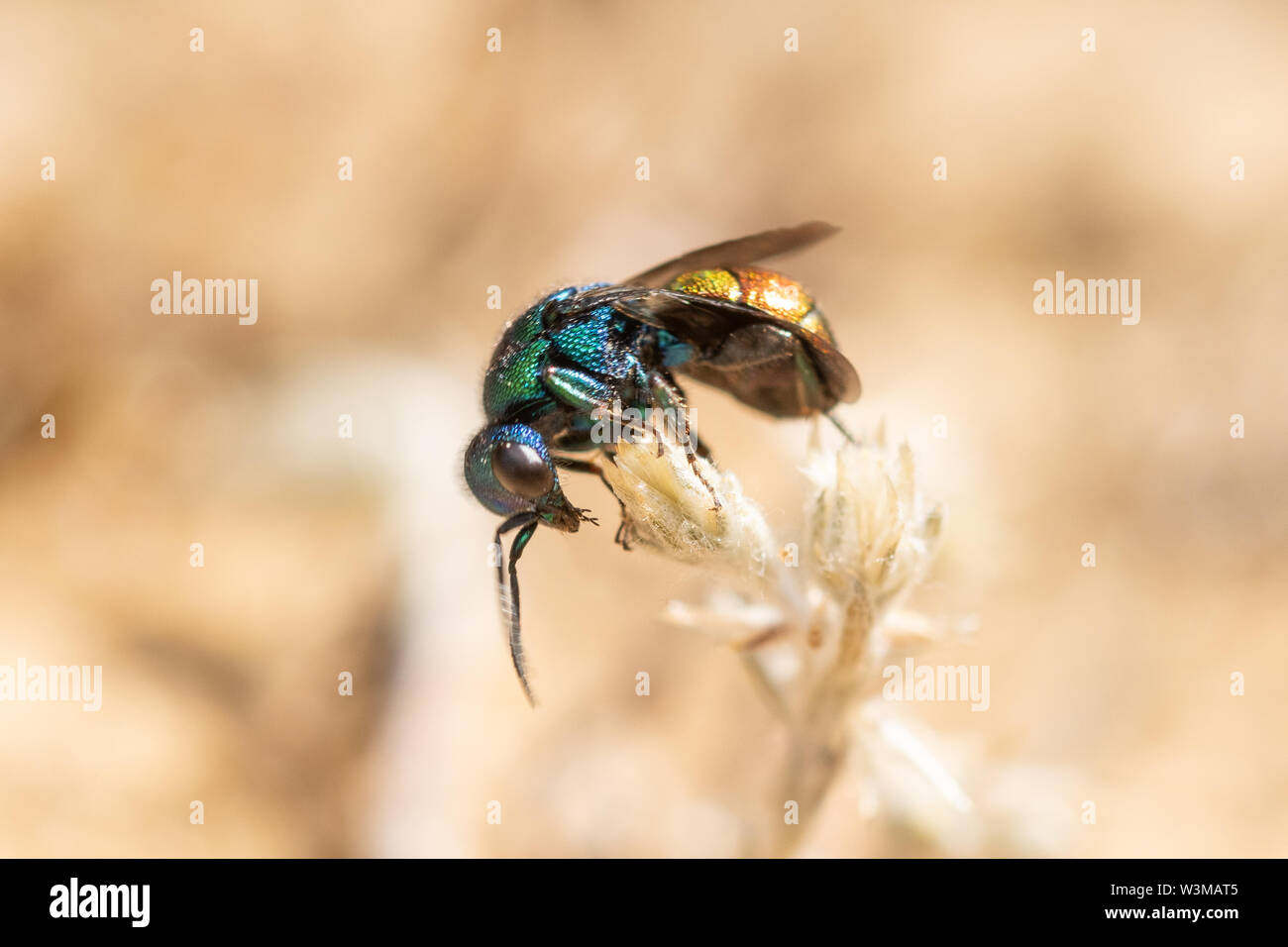Bees wasps and ants are all part of an insect order called hymenoptera.
Ruby tailed wasp species uk.
Chrysis ignita parasitize mason bees in particular.
It is a huge group with many species and a diverse range of forms.
Ruby tailed wasps have a very hard body cuticle that protects them from the stings of the host species if they are discovered in the act of laying their eggs in the host s nest.
The glittering metallic ruby tailed wasp is one of many species of solitary bee and wasp that can be spotted in a number of habitats from walls to sandy quarries rocky outcrops to tree trunks.
There are several species of ruby tailed wasps in the uk and ignita above is the one most frequently seen.
Instead the female builds a nest by herself stocks it with pollen and lays an egg.
The head and thorax are a dazzling greenish blue and the abdomen is a firey red.
It is likely to be a chrysidid cuckoo wasp a family of parasitoid and cleptoparasitic wasps.
Being barely 10mm in length they can be difficult to spot.
Ruby tailed wasps are often called cuckoo wasps because they lay their eggs in the nests of other insects usually other wasp and bee species.
You can distinguish a wasp by its striking black and yellow stripes and slightly more elongated bodies.
You can often see them running restlessly over walls and tree trunks constantly using their downward curving antennae to pick up the scent of their host insect.
Chrysididae ruby tailed wasps.
That flash of iridescent metallic blue green you observed near your solitary bee nest box was probably a wasp.
The abdomen is a deep ruby red if seen close up this is perhaps one of the most beautiful british insects.
Beautiful ruby tailed or jewel wasps.
Some species have tiny hairs but they are not as evident as in bees.
These wasps have a number of adaptions which have evolved to equip them for their life cycle.
Solitary bees and wasps do not live in colonies like honey bees.
Their beautiful colours mask the intentions of this assassin.
Chrysis ignita also known as the ruby tailed wasp is a species of cuckoo wasps cuckoo wasps are kleptoparasites they lay their eggs in the nests of other wasp species and their young consume the eggs or larva of the host wasp for sustenance.
However chrysis ignita is one of a number of very similar ruby tailed wasp species which are extremely hard to tell apart.
The head and thorax of the ruby tailed wasp is a shiny blue green colour.
In bright sunlight the vivid metallic colours of their bodies appear very jewel like.
Chrysis ignita is the species of the ruby tailed wasps that can be found across the uk from april through to september.
Each wasp species has its own characteristic body markings which you can spot only up close.
Chrysura hirsuta and chrysis fulgida.

